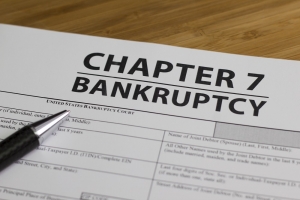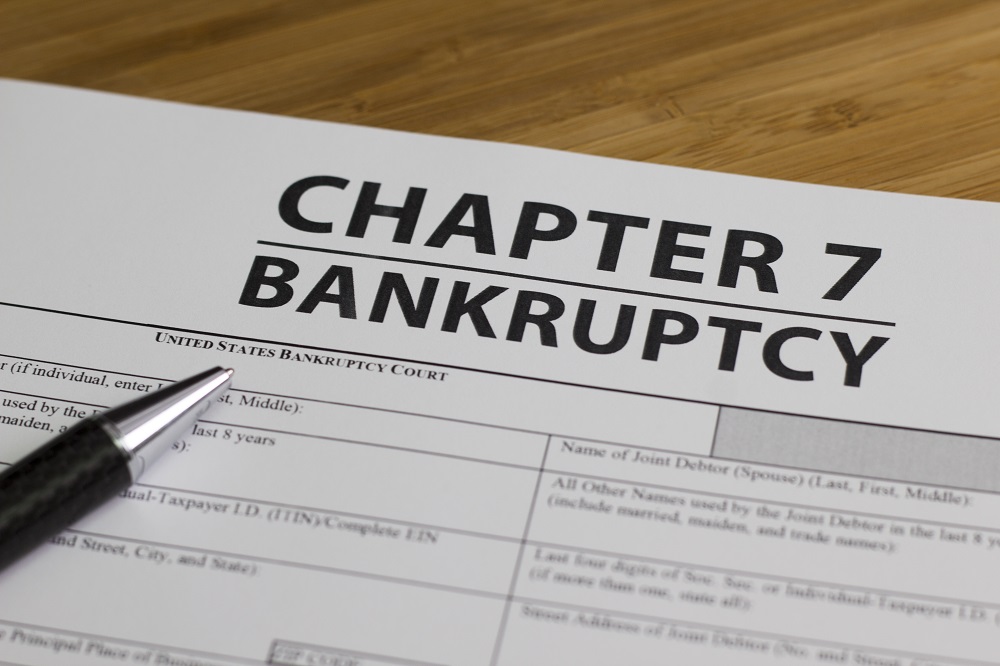Debts Not Dischargeable in Bankruptcy in Arizona
 Under normal circumstances, most debts in Chapter 7 and 13 cases are fully dischargeable. This includes credit cards, loans, mortgages, auto loans, money you borrowed from a neighbor twenty years ago and so forth.
Under normal circumstances, most debts in Chapter 7 and 13 cases are fully dischargeable. This includes credit cards, loans, mortgages, auto loans, money you borrowed from a neighbor twenty years ago and so forth.
However, some essential debt related to family law and criminal activity may not be included in your petition. Let’s go over Arizona’s list of non-dischargeable debt and what steps you should take in reducing these debts instead. Note this list follows the U.S. Bankruptcy Code.
Family law commitments
Court-ordered child support payments that fell into arrears cannot be discharged. Current child and spousal support payments are untouchable, too. In fact, any debt accrued in family courts such as birthing expenses or those ordered by a judge cannot be discharged.
Family debts should be mitigated with the court if payments are overwhelming you. Modifications are possible, albeit temporary, when finances slowly erode.
Criminal court payments
Restitution, court costs and those fines which were assessed after being sentenced in any criminal manner are non-dischargeable. Traffic tickets, tax warrants and similar law violations are also untouchable.
Persons who owe court-ordered restitution or fees should discuss their financial situation with the presiding judge and their attorney. A lower payment may be negotiated in light of your bankruptcy petition.
Other non-dischargeable debts
The following debts shouldn’t be included in bankruptcy petitions as they won’t be released:
- If you were sued for personal injury stemming from a DUI charge, the money owed isn’t dischargeable.
- Most student loans are non-dischargeable unless paying them back would cause undue financial hardship.
- Debts not included on your petition unless the credit learns of your bankruptcy.
- Debts incurred fraudulently.
- Personal loans or luxury purchases exceeding $1,150 within 60 days of filing your petition.
- Personal injury cases where willful negligence caused injury to a person or their property.
- Debts incurred after a divorce unless maintain that debt would cause undue hardship. Note the ex-spouse cannot incur injury due to debts you include in bankruptcy.
- Any money embezzled, or received resulting from breach of trust.
If you’re unsure whether a debt could be questioned, your bankruptcy attorney is there to help include all viable debts and leave off any debts stated above.
Things to Remember About Bankruptcy
Bankruptcy is meant for, and should only be used as, a tool when all other avenues of debt repayment would cause further hardship. The process effectively wipes away debts incurred your entire life, except for those non-dischargeable debts listed above.
When filing your petition, bear in mind:
- The judge will only discharge debts you include. It’s important to take your time, fill out the schedule of creditors properly, and include everything you’ve ever borrowed – including that $10 bill from your buddy 15 years ago.
- Affirm debt you will be able to pay without interruption. Reaffirmation agreements, while they do help debtors keep cars, mortgages and other major purchases, favor the creditor. Missed payments will have far worse implications than if you missed them without such an agreement.
- Auto dealerships and credit cards with high interest will flood your mailbox. Disregard them all. Since you can only file once per 7 years (from file date), creditors know you’ll pay the debt they’re offering you.
Non-dischargeable debts can be negotiated to lower payments if hardships such as job loss or reduction in disposable income comes to pass. Just be honest with your bankruptcy attorney, perhaps they’ll point you into the right direction.
Click here for additional information on whether tax debt is dischargeable in bankruptcy.

